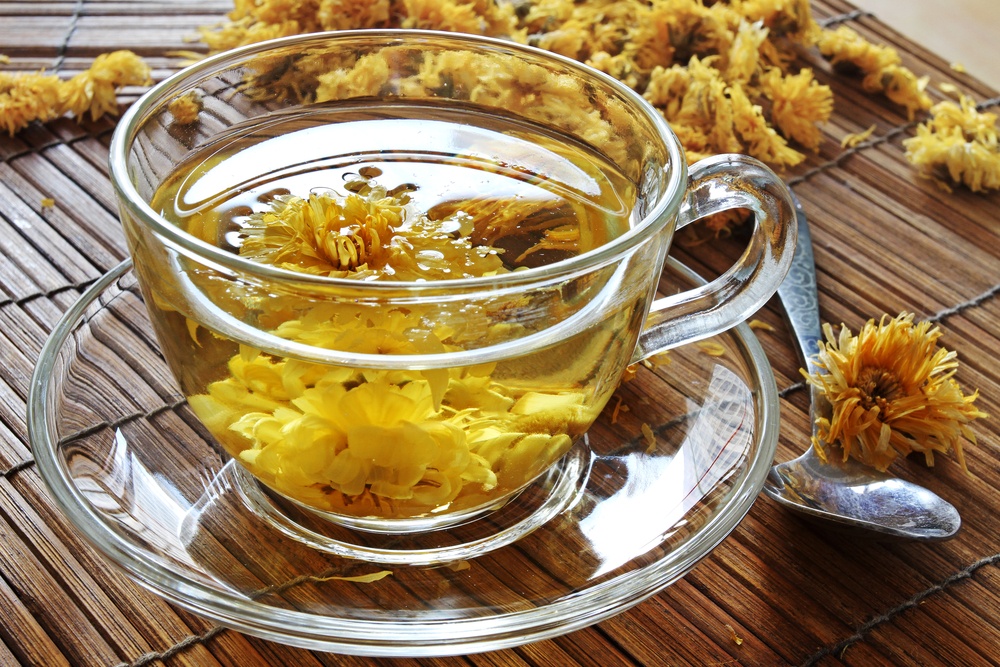Chrysanthemum tea, also known as “ju hua cha” in Chinese, is a popular herbal infusion made from dried chrysanthemum flowers. With a long history of use in traditional Chinese medicine, chrysanthemum tea offers a range of health benefits. From promoting relaxation to boosting the immune system, this floral tea has gained recognition for its potential therapeutic properties. In this comprehensive guide, we will explore the various health benefits associated with chrysanthemum tea.
Rich in Antioxidants:
Chrysanthemum tea is packed with antioxidants, which are beneficial compounds that help protect the body against oxidative stress caused by harmful free radicals. The tea contains flavonoids, phenolic acids, and other potent antioxidants that can help reduce inflammation, combat cellular damage, and prevent chronic diseases such as heart disease and cancer.
Calming and Relaxing Effects:
One of the well-known benefits of chrysanthemum tea is its calming and relaxing effects. Traditionally used in Chinese medicine for its soothing properties, this tea is believed to help relieve anxiety, stress, and insomnia. The tea contains compounds that act as natural sedatives, promoting relaxation and aiding in a restful night’s sleep.
Eye Health:
Chrysanthemum tea is often associated with eye health due to its potential to alleviate eye strain and improve vision. The tea contains high levels of vitamin A, which is essential for maintaining healthy eyesight. Regular consumption of chrysanthemum tea may help reduce eye fatigue, dryness, and irritation, particularly for those who spend long hours in front of screens or have age-related vision issues.
Skin Health:
The antioxidants present in chrysanthemum tea can benefit the skin in various ways. These antioxidants help neutralize free radicals, reducing the signs of aging such as wrinkles, fine lines, and age spots. Chrysanthemum tea can also help purify the blood, promoting a healthy complexion and preventing skin conditions like acne and eczema.
Digestive Aid:
Chrysanthemum tea has been used traditionally to support digestion. It is believed to stimulate the digestive system, promote bile secretion, and improve liver function. The tea’s anti-inflammatory properties may help reduce digestive discomfort and ease symptoms of indigestion, bloating, and nausea.
Immune System Support:
Chrysanthemum tea contains compounds that can strengthen the immune system. It is rich in vitamin C, which is known to enhance immune function and protect against infections. Regular consumption of chrysanthemum tea may help improve the body’s ability to fight off pathogens, reduce the duration of common colds, and support overall immune health.
Weight Management:
For those aiming to maintain a healthy weight or lose a few pounds, chrysanthemum tea can be a beneficial addition to their diet. The tea is naturally low in calories and can serve as a healthy alternative to sugary beverages. Additionally, chrysanthemum tea can help boost metabolism and promote fat burning, aiding in weight management efforts.
Anti-Inflammatory Properties:
Chrysanthemum tea possesses anti-inflammatory properties, making it potentially beneficial for individuals with inflammatory conditions such as arthritis or allergies. The tea’s compounds may help reduce inflammation, swelling, and pain, providing relief to those suffering from chronic inflammatory disorders.
Respiratory Health:
Chrysanthemum tea has been traditionally used to support respiratory health. It is believed to help alleviate symptoms associated with respiratory conditions such as coughs, sore throat, and congestion. The tea’s antiviral and antibacterial properties may help combat respiratory infections and promote a healthy respiratory system.
Detoxification:
- The detoxifying properties of chrysanthemum tea make it a popular choice for cleansing the body. Regular consumption of the tea can help flush out toxins, support liver function, and improve overall detoxification processes in the body. It is often used in combination with other herbal teas or ingredients to enhance its detoxifying effects.
- It’s important to note that while chrysanthemum tea offers numerous potential health benefits, individual results may vary. It is always advisable to consult with a healthcare professional before incorporating any new herbal remedies into your routine, especially if you have any pre-existing medical conditions or are taking medications.
- To prepare chrysanthemum tea, simply steep a few dried chrysanthemum flowers in hot water for about 5-10 minutes. The tea has a mild and slightly floral taste, making it an enjoyable and refreshing beverage.
- In conclusion, chrysanthemum tea is not only a delightful and aromatic drink but also offers a range of potential health benefits. From its antioxidant properties to its calming effects, this herbal infusion has been valued in traditional Chinese medicine for centuries. Incorporating chrysanthemum tea into your daily routine may contribute to overall well-being and support various aspects of your health.

